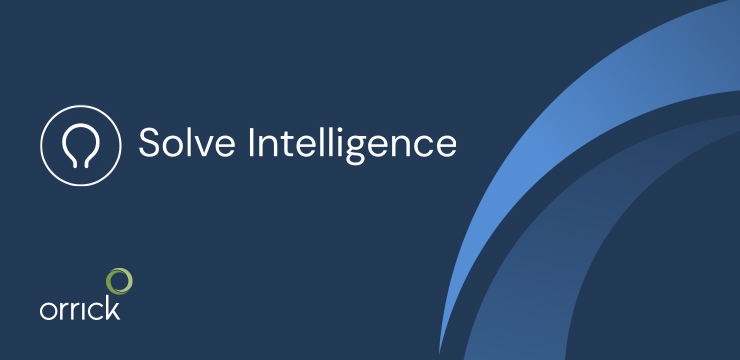Orrick Adds Rising Star Tech & Life Sciences IP Litigator
Raghav Krishnapriyan joins our IP litigation practice, bringing a strong record advising clients in the tech and life sciences sectors.

In the last five years, we’ve handled more than 60 patent trials, many of which were venued in the toughest arenas, from the Eastern District of Texas and the Northern District of California to the International Trade Commission (ITC). And we’ve handled more than 155 inter partes review proceedings before the Patent and Trademark Office (PTO) Patent Trial and Appeal Board in the last five years.
Our results prompted The American Lawyer to recently name us "IP Litigation Department of the Year,” noting "Time and again, we heard stories…lauding Orrick’s ability to jump into a case and successfully dig its clients out of a hole, even with little time to prepare. What’s more, the firm successfully demonstrated this across an impressive range of venues, using novel strategies."
As noted in the engagements below, we help our clients avoid massive damages, crippling injunctions and reputational harm. Our patent trial and appellate lawyers work closely with our clients’ in-house team to pursue the best achievable result with the minimum business disruption. We draw on our backgrounds in science and engineering to delve into the technologies in dispute. In describing one of our recent ITC trials, Financial Times noted how our team "dug deeper into the technical details than previous defendants to successfully challenge the claimant’s expert."
We combine that technical understanding with finely tuned courtroom skills to tell our clients’ stories in a clear and persuasive way. Early in each case, we work with our in-house counterparts to seek out themes that clarify the key legal, business and scientific issues. We refine those themes during discovery as we develop the detailed case highly tailored for each target audience.
We also leverage our litigation experience to help clients avoid the courtroom in the first place through effective IP counseling and licensing.
With two offices in China – Beijing and Shanghai – we offer Chinese and international clients powerful assistance in cross-border cases. We are one of the firms most often before China’s Patent Review Board. We provide the same to Taiwanese companies through our offices in Taipei, China and the United States.
Our group in Japan, together with colleagues in the U.S., counsels leading Japanese electronics firms. Our team has strong Japanese-language skills and an in-depth understanding of Japanese business culture.
Our Appellate team gives our clients another crucial edge. The team recently pulled off a reversal in the smartphone wars that made new law regarding injunctive relief for infringement of standards-essential patents.
Our PTO-registered lawyers regularly help clients secure new patent rights, often when the technology or business practice at stake is not well understood. We help clients determine the value of patents during acquisition due diligence and have a proven record of successfully negotiating patent licensing and settlement agreements.
Clouding v. EMC and VMware: We represented EMC Corporation and VMware in a 10-patent case brought by patent troll Clouding. Clouding had previously sued dozens of companies on several patents related to cloud computing, computer networks, and security. We succeed in having Clouding’s original case dismissed for lack of standing and, when Clouding refiled suit we brought eight IPRs that invalidated over 100 claims. As a result, Clouding ultimately dismissed its case against our clients.
Harvard v. GlobalFoundries and a global semiconductor manufacturing company: Harvard claimed one of its chemistry professors developed and patented processes used in semiconductor manufacturing. Harvard filed a lawsuit against two of the world’s leading chip makers, GlobalFoundries and another global semiconductor manufacturing company in Massachusetts, where Harvard has been in operation since 1636, but where our client has no offices or manufacturing facilities. Midway through the litigation, we filed a motion to dismiss based on the Supreme Court’s recent TC Heartland decision. Although the district court disagreed with our argument, the Federal Circuit vacated the lower court’s decision, finding that TC Heartland represented a “change in law.” On remand, the lower court transferred the case to Delaware, and we reached a successful settlement shortly thereafter.
Good Technology v. MobileIron: We obtained a complete defense verdict for MobileIron, which had been sued by a competitor and aggressive patent litigant Good Technology. Good had recovered over $300 million on its patents against others and had driven many companies out of business through its litigation strategy. Before trial, we had significant victories on the papers, eliminating some patents and gutting Good's damages case (which had been above $300 million). After an 11-day trial, the jury agreed that two of Good's patents were invalid and all of the asserted patents were found not infringed.
Metricolor LLC v. L'Oreal: This case involves claims of patent infringement, trade secret misappropriation, Lanham Act violations and breach of contract. Metricolor had approached L’Oréal about the potential sale or license of its technology for the packaging, storing and dispensing of hair dye. After discussion that took place under an NDA, L’Oréal declined. It had patented similar technology much earlier and Metricolor’s technology did not present any added value. Metricolor then sued L’Oréal in the Central District of California, alleging that two of L’Oréal’s products infringe Metricolor’s patent and incorporate its confidential and trade secret information. L'Oreal hired Orrick to handle the litigation. Several months later, the court granted our motion to dismiss.
TQ Delta v. AT&T: In this eight-patent matter, non-practicing entity TQ Delta filed suit against AT&T and several television companies over Multimedia over Coax Alliance (MoCA) technology. During the early stages of discovery, we persuaded TQ Delta to dismiss its claims with respect to two of the eight patents. We also developed strong invalidity arguments with respect to the other patents. Those arguments independently formed the basis of inter partes reviews (IPRs) brought by other defendants that led to a stay of the litigation. The IPRs, which AT&T did not take part in and so bore no expense for, resulted in findings that all claims asserted in the litigation are invalid.
Energy Company Dispute: We represented a leading energy company in a dispute with a top competitor. As part of that dispute, the competitor filed two waves of IPRs to challenge the validity of our client's patents at issue. We won claims in all five IPRs; in one IPR we won all claims, effectively neutralizing the competitor's leverage in the underlying dispute.
Raghav Krishnapriyan joins our IP litigation practice, bringing a strong record advising clients in the tech and life sciences sectors.

2 minute read | December.09.2025

2 minute read | September.05.2025
